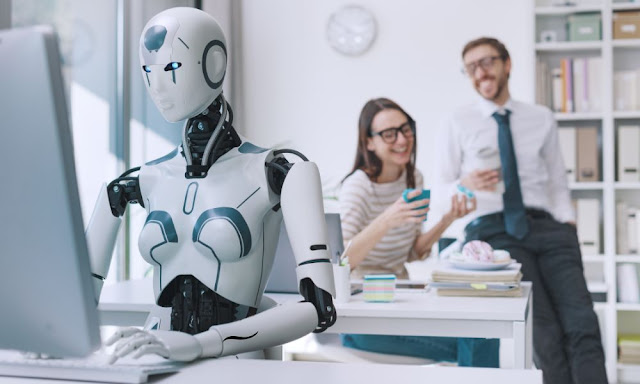The Future of Work: How Human-AI Collaboration Is Reshaping Job Roles
The rapid advancement of artificial intelligence (AI) is no longer just a technological trend, it’s a seismic shift that’s reshaping how we work, collaborate, and grow in our careers. As organizations adapt to an increasingly digital economy, the future of work is being defined not by human vs. machine, but by human + machine. This collaborative dynamic between people and intelligent systems is transforming job roles across industries.
From Automation to Augmentation
Initially, the narrative around AI centered on automation, the fear that machines would replace human workers. While some routine, repetitive tasks have been automated, a more nuanced picture has emerged. AI today is being leveraged more as an augmentative tool, enhancing human capabilities rather than replacing them.
For example, in healthcare, AI is not replacing doctors but helping them make faster, more accurate diagnoses. In marketing, AI can analyze consumer behavior at scale, allowing marketers to craft personalized campaigns. In finance, it’s helping analysts detect fraud patterns and predict market trends. Across the board, AI acts as a co-pilot, empowering professionals with deeper insights and faster execution.
The Rise of Hybrid Job Roles
The integration of AI into the workplace is giving rise to hybrid job roles, positions that combine domain expertise with a working knowledge of AI tools. Titles like “AI Marketing Strategist,” “Data-Driven HR Analyst,” and “Intelligent Automation Manager” are becoming more common. These roles demand both soft skills and digital literacy, blending human judgment with machine precision.
As a result, the traditional job description is evolving. Workers are increasingly expected to:
- Understand how AI tools function
- Interpret AI-generated insights
- Collaborate with AI systems to solve problems
This trend is creating new career paths and reshaping existing ones, leading to fluid, multidisciplinary roles rather than static, siloed jobs.
Key Skills for the Future Workforce
As human-AI collaboration becomes the norm, certain skills are rising in importance:
- Digital Literacy: Comfort with digital tools, including generative AI, no-code platforms, and data dashboards, is now essential.
- Critical Thinking: AI can process data, but humans still need to ask the right questions and make informed decisions.
- Emotional Intelligence: Soft skills like empathy, communication, and leadership remain irreplaceable, especially in roles involving people management or customer interaction.
- Adaptability: As technology evolves, the ability to learn, unlearn, and relearn becomes vital.
The future workforce must become tech-savvy generalists, able to apply creativity and strategy in partnership with intelligent tools.
AI as a Creative Partner
One of the most exciting developments is AI’s role in enhancing human creativity. Generative AI platforms can now compose music, write articles, design graphics, and even generate code. But the best results emerge when humans steer the process.
Creative professionals are using AI to:
- Brainstorm ideas faster
- Prototype designs more quickly
- Iterate content based on real-time feedback
This synergy doesn’t dilute creativity, it multiplies it. By taking over time-consuming tasks, AI allows professionals to focus on the uniquely human aspects of their work: innovation, storytelling, and emotional resonance.
Challenges and Ethical Considerations
While the future of human-AI collaboration holds great promise, it also raises important challenges:
- Job displacement: Some roles, particularly those involving repetitive tasks, are at risk. Reskilling programs and supportive policies will be critical.
- Bias and transparency: AI models can inherit biases from their training data. Ensuring ethical use and explainability of AI is essential.
- Data privacy: As more work is augmented by data-driven tools, organizations must protect personal and organizational data rigorously.
Companies must prioritize responsible AI integration, with transparency, fairness, and inclusivity at the core of every initiative.
Embracing the Collaborative Future
The future of work isn’t about humans competing with AI, it’s about working together to achieve outcomes neither could accomplish alone. Organizations that successfully integrate AI while empowering their workforce will gain a competitive edge in innovation, efficiency, and employee engagement.
To thrive in this evolving landscape:
- Businesses must invest in reskilling and upskilling their teams.
- Individuals must develop a growth mindset and embrace lifelong learning.
- Leaders must champion a culture of curiosity, collaboration, and trust in technology.
Final Thoughts
Human-AI collaboration is not a futuristic concept, it’s happening right now. As AI continues to evolve, it will redefine what it means to work, create, and lead. By embracing this partnership, we open the door to a more productive, creative, and inclusive world of work.
.jpg)

Comments
Post a Comment